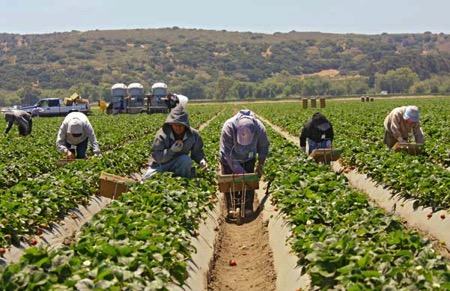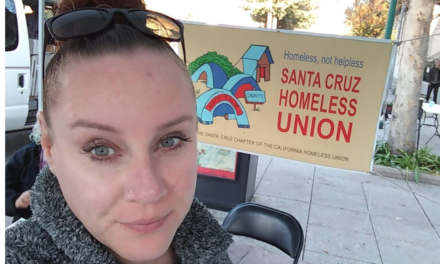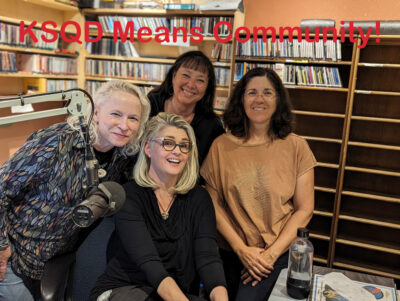
This feature was produced by UCSC Science Communications intern, Jesse Kathan.
Photo credit: Wikimedia Commons
Transcript
[background conversation in Spanish]
The temperature is in the eighties on a recent spring day in Watsonville. A woman watches her four daughters while packing the car with bags of rice and beans. Because she’s undocumented and fears for her safety, she’s asked to be identified by the name “Carmela”. For KSQD, I’m Jesse Kathan.
Usually, Carmela would be spending long hours in a field in Watsonville, harvesting strawberries. Jobs are usually scarce this time of year, as strawberry season has just begun. But COVID-19 has led some farms to cut back on their usual operations, leaving even less work. Carmela and her forty coworkers are lucky if they get two or three days of work. She isn’t working at all. Instead, she’s making sure families in similar situations can access food.
For years, Carmela has worked with the Center for Farmworker Families to help run a distribution center that supplies food, diapers, and other necessities to farmworkers across Santa Cruz County. In the midst of the pandemic, it’s become even more vital as a resource.
Carmela (Translated from Spanish): The coronavirus has affected us a lot because we can’t work in the field, and now there’s not a lot of work. It affects us with the ability to pay rent, with bills, with food and everything. It’s very difficult for us, for the farmworkers, because we don’t have a lot of income for our costs.
Because Carmela is undocumented, she’s not eligible for the $1200 dollars in coronavirus relief being delivered to citizens, and she’s unable to access programs like Medi-Cal or Calfresh. On April 15, Governor Gavin Newsom announced a $75 million dollar relief fund for undocumented workers. Each adult is eligible for $500 dollars in aid. To distribute the money, Newsom plans to partner with local nonprofits with ties to the community.
For Dr. Ann Lopez, the founder of the Center for Farmworker Families, those ties are strong. She’s spent years educating the public about the challenges faced by local farmworkers. COVID, she says, has made their situation even more dire:
Lopez: Right now, they’re in what I call a four pillared hell, where the majority of them in the state are undocumented. There’s almost no work. They have no money because they didn’t work all winter. They can’t pay rent, they can’t buy food. They always live with a fear of being deported and having their families torn apart. And now, adding the coronavirus pandemic to the situation has created even more panic within the community.
Demand for food across the state has dropped by 50%, according to a recent statement from Governor Newsom. But at one Watsonville farm, business is busier than ever. At Lakeside Organic Gardens, masked workers rapidly harvest leaves of green kale. To comply with social distancing guidelines, they’re spread out across the rows.
Gonzalez: We have a lot of applicants for all departments.
Juan Gonzalez is the operations manager oof Lakeside Organics, which supplies local and national grocery stores with over fifty crops. As demand for groceries rises, he’s hiring more workers, not less. Gonzalez says the farmers most heavily impacted by the pandemic are those that sell to restaurants, cafeterias, and hotels.
Gonzalez: A lot of people are without work and people need to eat, people need to work, people need to make some money.
So far, over 250 people applied to work in his fields. He’ll only be able to bring on about 40.
Those that do manage to find work face risks in the field. In Monterey County, agricultural workers make up 25% of all reported COVID cases. Advocates worry that crowded living conditions, and lack of access to healthcare could help the virus rapidly spread among farmworkers and their families.
Earlier this month, state Assemblymember Robert Rivas introduced AB 2915, a law that would give farmworkers an extra $3 an hour in hazard pay, provide temporary housing to those living in overcrowded conditions, and make OSHA safety guidelines mandatory for farms.
For Carmela, that help can’t come soon enough.
Carmela (translated from Spanish): There’s a lot of stress. I hope there will be more work soon.
For KSQD, I’m Jesse Kathan in Watsonville, California.











